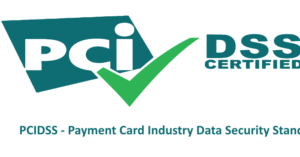Financial CRM technology (fintech) is experiencing notable growth in this rapidly evolving financial landscape, making B2B and B2C financial transactions convenient.
Business customers in financial M&A, consultancy, and member industry associations, managing dues, subscriptions, and any receivables-based automation require simple onboarding and manageable costs-carrying technologies. Whether it is about today or the future, fintech companies must work on building and maintaining customer relationships from end-to-end lifetime value.
The Need for CRM in Fintech
Cool Life is a Fintech company that has harnessed tech to transform financial services. However, the human touch remains crucial amidst this innovation. Customer Relationship Management (CRM) systems are important in this technology. CRM has emerged as a powerful tool for managing customer interactions for fintech. Businesses can understand the need and create tailored experiences.
- Managing customer relationships. Fintech companies provide seamless operating tools.
- Payment processing
- Transactions platforms
- Peer-to-peer communication
- Customer 360 view
- Projects
- Secure document storage and sharing (VDR)
Benefits of CRM in Fintech
360-degree Customer View: CRM platforms consolidate customer data from various touchpoints. Businesses can thoroughly view each customer’s interactions, preferences, and behaviors. With this holistic view, fintech companies can tailor their offerings to customer needs.
Personalization: Fintech CRM enables personalized interactions through data-driven insights. Quality data helps businesses to enhance customer experiences, boosting loyalty and customer retention. Also, they can provide personalized services such as:
Customized Platform
Data-Driven Decision Making: CRM & VDR platform provides data analytics tools that help companies make informed decisions. Companies can use data from a CRM platform to refine their strategies and launch targeted marketing campaigns. They can also analyze customer behavior and market trends while managing detailed financial transactions, either B2B or B2C.
Efficient Customer Support: Prompt and efficient customer support is a hallmark of successful fintech firms. CRM streamlines customer support processes, ensuring quick issue resolution. Communication is the clear path to higher customer satisfaction.
Charing sensitive documents using your (VDR) Vault rooms
Lead Management and Conversion: CRM helps manage leads by tracking interactions and analyzing conversion patterns. Historical data enables fintech companies to optimize their sales processes and improve conversion rates. Some of the advantages of using a CRM for lead management are:
- Increased ROI
- Improves lead nurturing
- Boost workflow automation
- Reduces costs
- Reduces response time
Regulatory Compliance
The fintech industry is subject to strict regulations and credentials, PCI, FINRA, and SOC 2. CRM systems with compliance tools ensure that all interactions and transactions adhere to these regulations.
Scalability: As fintech companies grow, managing an expanding customer base becomes challenging. CRM systems scale alongside the business, handling increased data volume and maintaining seamless operations.
Usage of CRM in Fintech
Customer Onboarding: CRM facilitates a smooth onboarding process. It collects and organizes customer information, verifies identities, and automates document submissions.
Segmentation: Fintech CRM segments customers based on demographics, behaviors, and preferences. Identifying demographics enables targeted marketing, product suggestions, and personalized interactions.
- Engagement Automation
- Sending personalized emails
- Notifications
- Alerts based on specific triggers or events
- Cross-selling and Upselling
- Businesses can analyze customer profiles and behavior.
CRM then identifies potential for cross-selling and upselling, contributing to revenue growth.
Data Security: CRM systems focus on data security, which is crucial in the fintech industry. They incorporate encryption, access controls, and compliance features to safeguard sensitive customer information.
Analytics and Reporting: Fintech CRM offers advanced analytics and reporting tools. These enable data-driven insights, helping companies refine their strategies and identify market trends.
The Future of CRM in Fintech
As tech continues to upgrade, the future of CRM in fintech holds great promise:
AI-Powered Personalization: Artificial Intelligence (AI) can enhance the customization experience by analyzing complex customer behaviors and preferences.
Voice and Chatbot Interfaces: Voice assistants and chatbots powered by Natural Language Processing (NLP) can be game changers. They could become integral to these CRM systems and handle customer queries and transactions with natural conversations.
Fintech technologies have become an important part of a company’s objectives in delivering the LTV of customer companies in the B2B and consumer B2C contacts. These systems are transforming the fintech landscape. They offer a holistic view of customers, enabling personalization and data-driven decision-making. Businesses should address three challenges:
- Data security
- Integration
- Adoption
CRM can be helpful and is used to drive customer satisfaction, retention, and financial growth. The evolution of CRM in fintech is an ongoing journey. CRM remains a crucial bridge between tech innovation and human-centric services. Adding your business cross-population of system integration is facilitated with secure API communication in real-time CRM systems, which will become more powerful.
Cool Life Fintech provides business end-to-end processes worldwide, securing your ability to drive revenue-saving insurmountable time and resources while remaining compliant and efficient.





